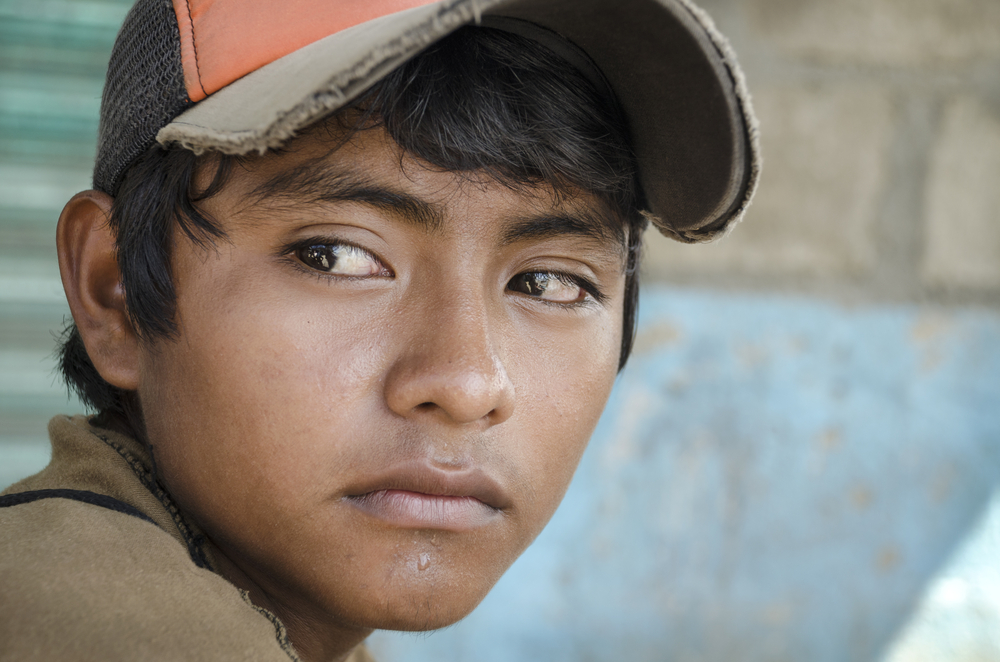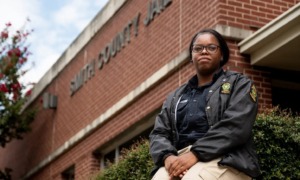
LeonRafael/Shutterstock
.
As policymakers in Washington wrangle over walls, many youth in communities on our southern border grapple with fear of exclusion in the country they call home. In a study we recently conducted in partnership with La Unión Del Pueblo Entero (a community organization in the Rio Grande Valley, Texas), we learned about the unfortunate effects that this fear is having on the educational readiness and health of youth in the Rio Grande Valley.
We also discovered another important finding — that in spite of the fear and chronic stress residents experience in this border region, community organizing is building resiliency within families to weather the ups-and-downs of living in fear of deportation and family separation.

Martha Ockenfels-Martinez
A little over a decade ago I began working with community members across Minnesota to pass the Minnesota Dream Act. The Minnesota Dream Act was a bill that would have made Minnesota’s undocumented immigrant youth (sometimes referred to as Dreamers) eligible for in-state tuition rates at local colleges. At the time, youth who had migrated to Minnesota as youngsters were charged international rates for tuition, which was up to three times more expensive than in-state tuition. This made college unattainable for many Minnesota Dreamers.
While other barriers to educational equity still existed, the community organizing efforts to pass this particular piece of legislation meant a lot for the state. It was part of a movement to humanize immigrant youth, and it became a vehicle for youth, immigrants and allies alike to unite in an era of national anti-immigrant discourse.
After years of youth and allies organizing together, the bill passed in 2013 and was signed into state law. As a young ally to the immigrant rights movement, I learned that community organizing was key to passing this bill. The power of youth voices coupled with the support of political allies proved to be a great force for creating change.
Arrests cause lasting health woes
Years later and across the country, I had the opportunity to work on a research project focused on the effect that deportations and forced family separations were having on youth and families in the Rio Grande Valley. We found that many youth in the Rio Grande Valley experience chronic stress and fear that they — or a loved one — will be arrested and deported for a minor traffic infraction like driving with a broken taillight.
This fear comes from being witness to the loss of friends and family to deportation after they were pulled over while driving and arrested, detained and swiftly deported. We also learned that even young children were affected by these fears, either by experiencing losses themselves or from hearing stories about students who came home from a day at school to find their parents were taken during the day and deported.
Last year, approximately 1,800 U.S.-born kids in the Rio Grande Valley had a parent deported by immigration officials. An estimated 75,000 more U.S.-born children in the Valley are at risk of this same fate — of having a parent deported and of having their family torn apart.
Youth in the Rio Grande Valley contribute and have jobs. The money they earn goes to college tuition and to the local economy. Educators, community members and business owners all want to see these youth succeed and stay in the region — yet current local law enforcement practices have become a barrier to this vision. When law enforcement officials work with federal immigration officials to arrest and deport Rio Grande Valley residents, regardless of age or contributions to the community, it sends the message that immigrant youth are criminals because of their immigration status or because of their family’s country of origin.
This criminalization — and subsequent incarceration — of undocumented youth is part of a larger history of criminalizing young folks or people of color because of their racial, ethnic or class identity. In the 1940s American citizens were criminalized for being Japanese American and forced into internment camps. In the 1930s, American citizens were arrested and deported as part of the “Mexican Repatriation Program” (a misnomer in that many people deported illegally were in fact American-born citizens). Today, Native Americans, African Americans and Latino youth are often targeted, arrested and incarcerated.
Incarcerating youth and removing them from their community creates deep, historic and lasting health effects. When a child is locked up for any reason, their current and future health is endangered, and their future livelihood and educational success are also affected.
The law enforcement practices in Texas aren’t that different from law enforcement practices across the country when it comes to arresting youth for petty juvenile offenses. Incarcerating immigrant and nonimmigrant youth isn’t really a question of safety, it’s a question of values. Do we as a society love and cherish all youth? Or do we judge youth based on the color of their skin, which neighborhood they live in or for their country of birth?
In the Rio Grande Valley, youth are experiencing symptoms of post-traumatic stress disorder, as well as symptoms of anxiety disorders. Their physical and mental health is affected even when they haven’t directly experienced an arrest or deportation in their family. And the health effects Valley youth are dealing with are not that different from what other youth experience in communities that are impacted by high rates of incarceration.
Our public health-focused research in the Rio Grande Valley led us to recommend that local law enforcement officials shift their practices in order to create a safer community that encourages the health and wellbeing of youth and families.
We recommended that local law enforcement officials:
- prioritize local police resources toward local law enforcement issues instead of assisting immigration officials
- increase use of “cite and release” practices during standard traffic stops
- and accept alternative forms of identification for traffic stop procedures.
These recommendations are specific to the region, and the focus is on decriminalizing the population in order to improve youth and family health throughout the Valley. A similar approach based on human dignity can be applied nationally in all systems that involve youth to ensure healthy futures for all.
Martha Ockenfels-Martinez, MPH, is a research associate at Human Impact Partners, a public health organization that transforms the policies and places people need to live healthy lives by increasing the consideration of health and equity in decision-making.





























